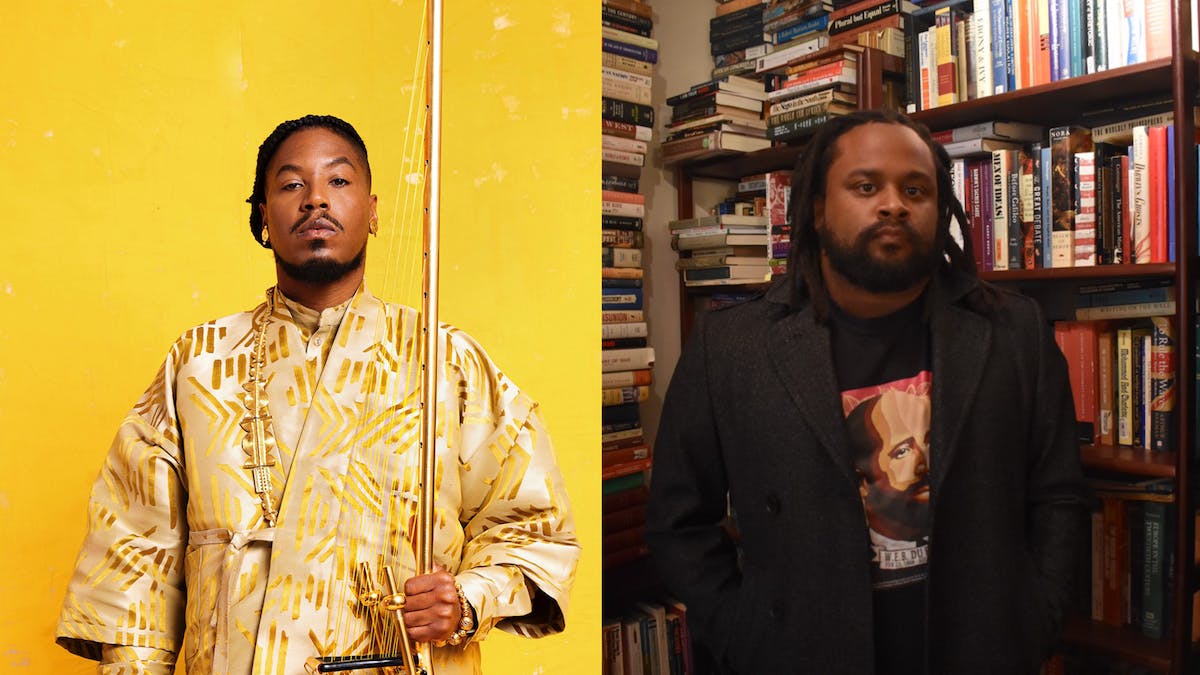Chief Xian aTunde Adjuah & Joshua Myers
Composer and producer Chief Xian aTunde Adjuah is joined in conversation by Dr. Joshua Myers, Associate Professor of African American Studies at Howard University and author of the new book Of Black Study.
Thurs,, June, 22 7:30 p.m.
Free

Together, Chief Xian aTunde Adjuah and Dr. Joshua Myers will explore the evolution of Black music, Adjuah’s concept of “stretch music,” and the ways in which music can connect us to our ancestral roots. Adjuah is a two-time Edison Award-winning and five-time Grammy-nominated artist, and is a recipient of the 2023 Doris Duke Artist Award.
Chief Xian aTunde Adjuah [formerly Christian Scott] is a two-time Edison Award-winning, six-time Grammy Award-nominated, Doris Duke Award in the Arts awardee. He is a sonic architect, trumpeter, multi-instrumentalist, composer, producer, and designer of innovative technologies and musical instruments (including The Stretch Music app, Adjuah Trumpet, Siren, Sirenette, Chief Adjuah’s Bow and Chief Adjuah’s N’Goni). He is the founder and CEO of the Stretch Music App and Recording Company. And Chieftain of the Xodokan Nation. Adjuah is the grandson of Louisiana luminary and legend, the late Big Chief Donald Harrison Sr., Grand Griot of New Orleans and Guardians Institute founder, Herreast Harrison. And the nephew of Jazz innovator and NEA Jazz Master saxophonist-composer, Big Chief Donald Harrison Jr. Adjuah (and his twin brother Kiel) joined his grandfather’s Guardians of the Flame banner in 1989 at the age 5. Adjuah is the crowned Chieftain of the Xodokan.
Joshua M. Myers is an Associate Professor of Africana Studies in the Department of Afro-American Studies at Howard University. He is the author of Of Black Study (Pluto, 2023), Cedric Robinson: The Time of the Black Radical Tradition (Polity, 2021), and We Are Worth Fighting For: A History of the Howard University Student Protest of 1989 (NYU Press, 2019), as well as the editor of A Gathering Together: Literary Journal. A central thread that guides all of this work is an approach to knowledge that takes seriously that peoples of African descent possess a deep sense of reality, a thought tradition that more than merely interprets what is around us but can transform and renew these spaces we inhabit—a world we would like to fundamentally change.